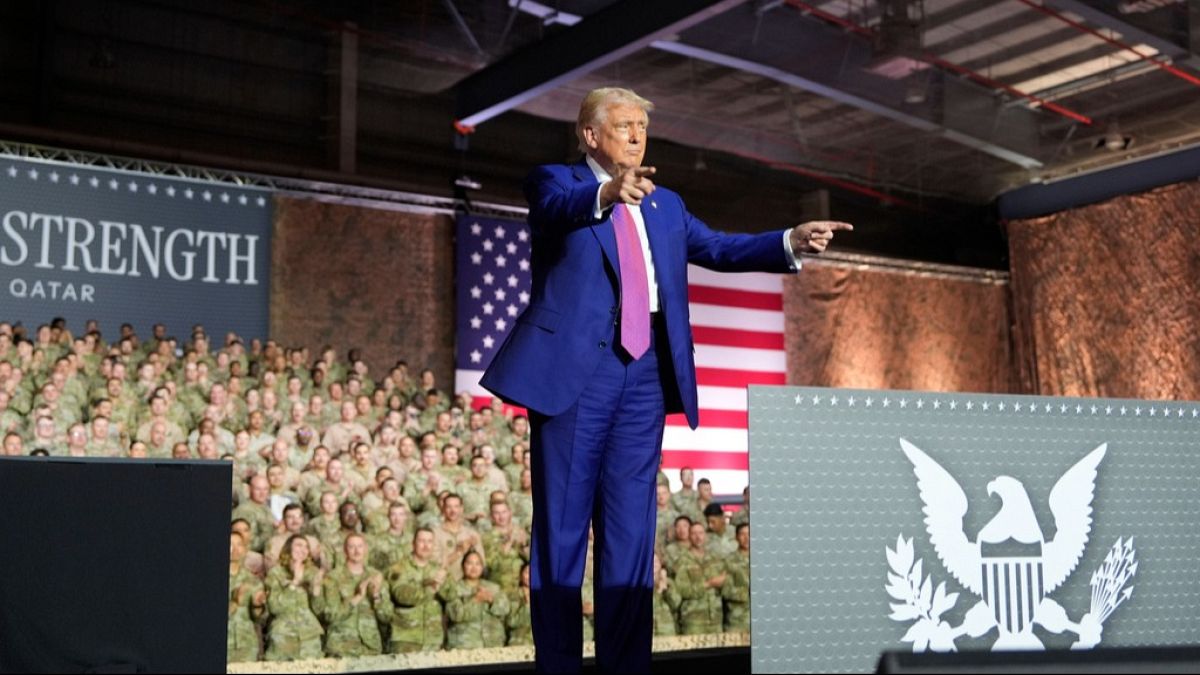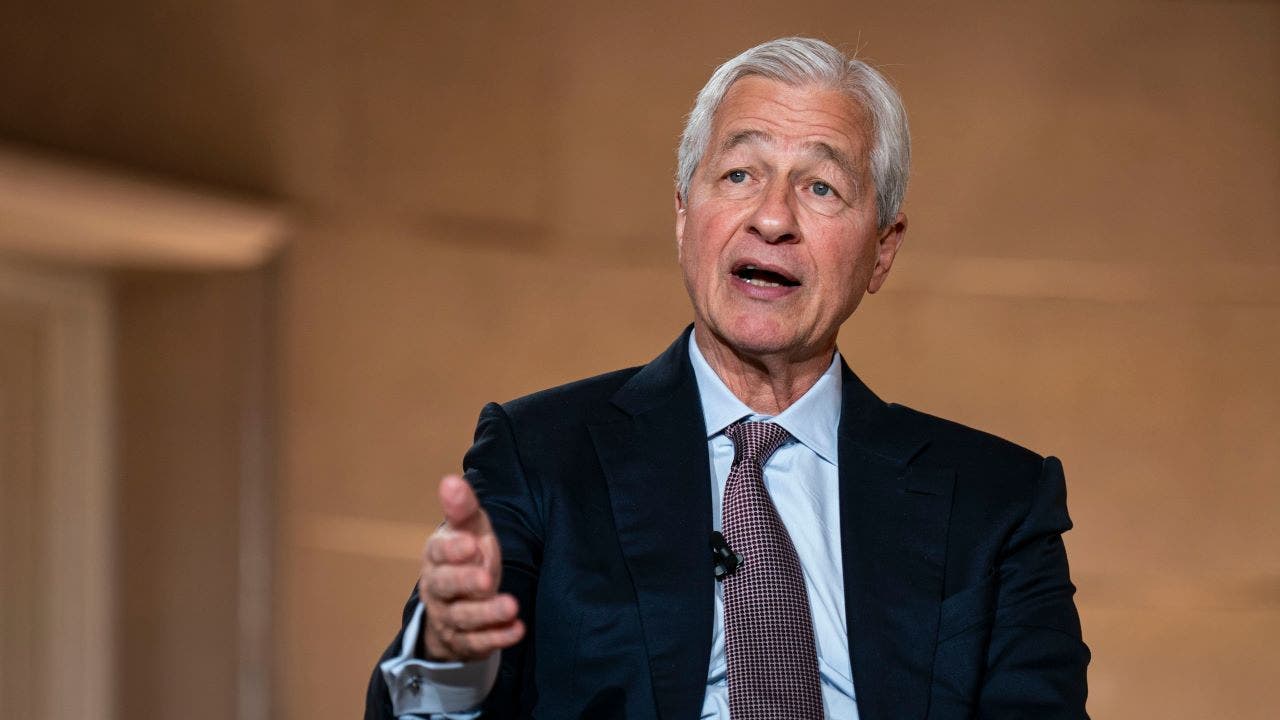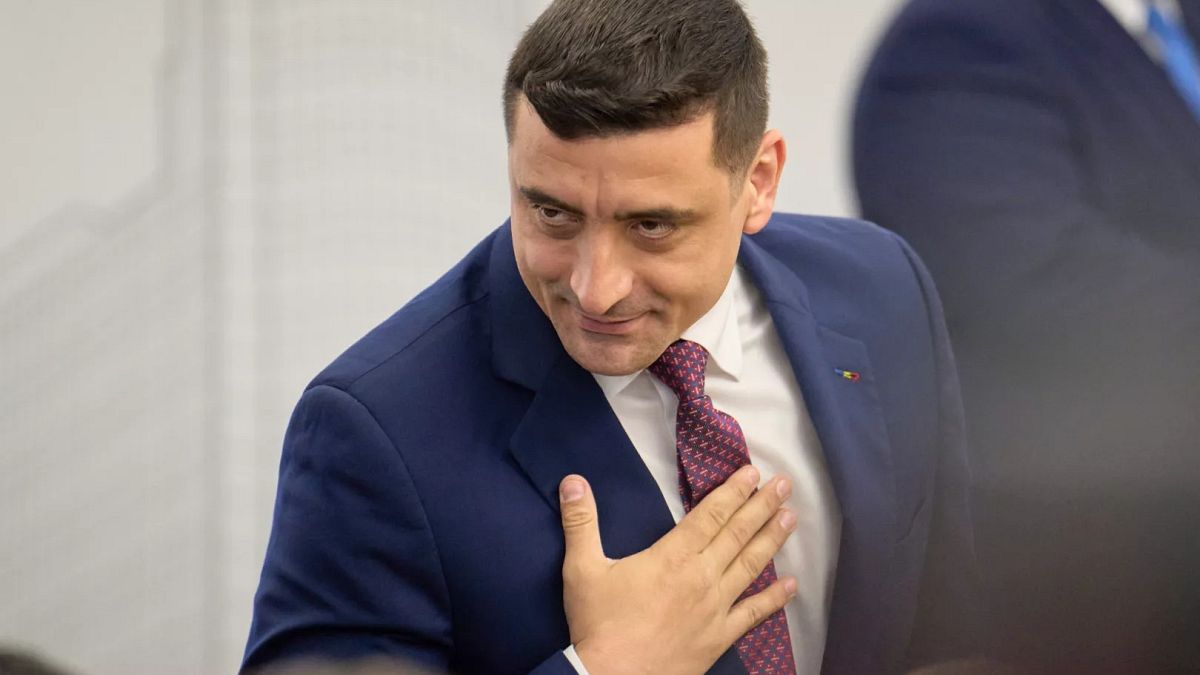Hard-right Romanian presidential candidate George Simion is spending his last campaign days not in Romania, but on a foreign tour.
Simion is seeking the decisive votes of the Romanian diaspora and spreading his message, garnering support and fostering future European alliances if he emerges victorious on Sunday.
As the latest Romanian opinion polls show a virtual neck and neck standoff between Simion and independent candidate Nicusor Dan, Romania is transfixed by the last hours of the presidential race, seen as existential for the country’s future course by most Romanians.
But Simion has chosen the foreign tour of European capitals and the estimated six million Romanians living abroad rather than battling it out in debates in Romania, a bold move signalling he is confident he secured the votes to win the presidency in Romania.
Until now, Simion and Dan have confronted each other in just one national television presidential debate, which was hosted by Euronews Romania last Thursday.
Euronews and Euronews Romania caught up with him at the European Parliament in Brussels on Thursday where he met various MEPs, but also the Romanian diaspora in Belgium.
‘I will be an example of pro-European, pro-NATO president’
Both campaigns consider the votes of Romanians abroad decisive for Sunday’s second round. Simion has been on a campaign tour of London, Rome, Brussels and Paris (as planned for Friday), while his contender Dan is campaigning in Romania.
“The first objective that we have is to reach towards the Romanian audience, the Romanians that are voting here, as the voting starts tomorrow morning for our diaspora, this is why tonight I am also going to Paris,” Simion told Euronews and Euronews Romania.
He quickly added the main thrust of his foreign policy narrative, that “we are not isolated, we are not against EU and NATO, as many lied.”
“We are part of the European Conservatives and Reformists, the party of Giorgia Meloni, of Mateusz Morawiecki, and I will be an example of pro-European, pro-NATO president fighting for the interests of the Romanian nation,” Simion said.
The day after meeting Italian Premier Meloni in Rome, whom Simion has admired for a long time, and securing a joint video on his social media in the Italian capital on Wednesday, Simion announced that Meloni’s government “is the model for us”.
“The way they ended the confusion in Italy (was) with rapid changes of government. They had Conte, Renzi and others, technocratic governments who didn’t produce prosperity for their citizens. And now for two years… Italy is again, how they say it in Italian, ‘protagonista’,” Simion explained.
“They are delivering for their citizens, they are assuring stability and they had a good presidency in G7. So yes, Giorgia Meloni, Salvini and Tajani’s government is the model for us,” Simion said.
He also reiterated his admiration for former Polish Prime Minister Mateusz Morawiecki and President Andrzej Duda. Simion travelled to Warsaw on Tuesday to join his conservative counterpart Karol Nawrocki in his campaign rallies and was received by President Duda himself.
Both Romania and Poland will hold presidential elections on Sunday, and Simion has already declared he is looking forward to a strong alliance with Poland if both he and Nawrocki become presidents.
“In Poland, Mateusz Morawiecki did wonders. He was six years in government. He managed to bring half a million Polish citizens back home in Poland with President Duda. So both President Duda and Prime Minister Morawiecki did what they had to do for the Polish nation,” Simion said.
‘A model of economic cooperation and a model of peace’
While his opponents warn that his victory would scare investors off and throw Romania into an economic crisis, Simion is using his foreign tour to invite economic cooperation.
“We have 6 million Romanians, half of our active population abroad, so we will concentrate our efforts on the economy, on attracting foreign investors, on being open to develop our country, which is a rich country,” he explained.
“We have offshore natural gas in the Black Sea, we have onshore, we have oil, we basically have all the elements in the Mendeleev table, so we want to benefit from these natural resources, from our minerals, to stop our population from being poor,” he said.
His view on how the European Union economies should function, Simion opts for what he calls “a model of economic cooperation and a model of peace”, which could be endangered by “a separation into geopolitical blocks, EU and US.”
“This is why, at European level, we are the most pro-transatlantic party. We advocate for maintaining the unity of the free world with two important pillars, EU and US, then the commonwealth and the other countries,” Simion proclaimed.
But one of the main concerns across Europe is that Romania, a staunch NATO ally and the alliance’s Eastern flank country, could change its pro-Western course under a Simion presidency, based on his past statements.
A strong Trump supporter, the hard-right presidential candidate has been advocating over the last weeks and months that he is unfairly accused of being pro-Russian.
He told Euronews and Euronews Romania that Russia “is the biggest risk for Romania” and outlined his foreign policy doctrine in no unclear terms.
“Russia took territories and killed our people under the Ribbentrop-Molotov Pact. So yes, it is a risk, but even a greater risk is to have this split in the free world,” Simion pointed out.
“We worked a lot to be a part of the EU and NATO, and we don’t want separation, divisions inside our allies. We have three pillars at the basis of our security strategy: our strategic partnership with the US, a member of NATO, and a member of the EU.”
“We want the war in Ukraine stopped. We need the truce. We need a ceasefire and peace negotiations. Hopefully, and we pray for this, that President Trump will obtain peace. I’m sure President Trump wants to be remembered as a peacemaker, and he is the leader of the free world,” Simion said.
According to Euronews’ political sources in Budapest, Simion’s campaign sent emissaries over time to Budapest for talks with Hungarian Prime Minister Viktor Orban’s government. When asked if he has spoken recently with the Hungarian prime minister, Simion said he “has not spoken with Viktor Orban,” but that he “admires his policies”.
“Many of our interests can unite us. We have also red lines, but we must think about cooperating in the future for a Christian continent that respects the tradition and identity,” concluded the hard-right presidential candidate.



